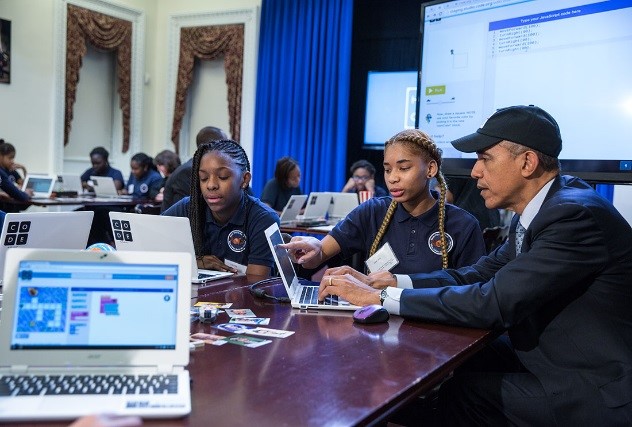Technology is a divisive subject among teachers. Some are ardent acolytes, fully persuaded of its ability to change the educational landscape, introducing students to new experiences and dissolving the orthodox approach to schooling that remains dominant in Anglo-American schools. Others are deeply sceptical, sensing a fad in full flow – tech will never truly usurp the teacher and is just a bunch of stagecraft for dazzling and distracting students away from true learning.
Most teachers, in my experience, are more measured and fall somewhere between those two positions. Technology is probably not yet poised to fully subsume the role of the teacher, but it can certainly aid and augment everyday practice. Let’s call this group ‘augmentists’.
Augmentists make up the silent majority in teaching. How could they not? Anyone who has ever made a Powerpoint presentation, showed a Youtube video to a class or used software to look up a student’s home phone number has had their practice augmented by tech. We all generally accept that technology can help us do our jobs better in the classroom.
But why should tech’s remit end at the walls of the classroom? It seems perfectly plausible that technology can help with other aspects of the successful managing and running of a school – isn’t that what technology does in general?
Here’s an example of where tech can help schools – the recruitment crisis. Currently in the UK, schools – especially in London and the South-East of England – are struggling to retain staff and recruit new ones. Among the panoply of causes of this crisis is the brute issue of financing. Recruiting teachers is expensive: hosting a job advert on a major website can cost schools thousands, while using a private organisation to find and manage staff incurs enormous agency fees, often in the tens of thousands a year.
Can tech help with this ostensibly extra-curricular issue? Of course. An app can often do the job of an agent – allowing schools to find staff to fill vacancies – for a fraction of the cost, and with significantly amplified efficiency. This can limit the financial burden of the recruitment crisis on schools, as well as drawing a new crop of old hands back into the profession on the promise of more flexible work and better rates of pay.
That’s pretty much how Teacher Booker works. It’s saving schools money while teachers using it earn more than they would through traditional means of recruitment.
So to all the augmentists – technology has more than an assistive place in pedagogy, but a much wider role in the growth and development of the whole of a school. Time to embrace it.

